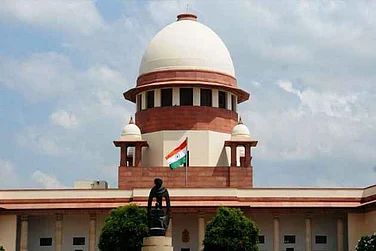Delhi environment minister Gopal Rai on Monday said next two weeks are crucial for national capital due to the combination of Dussehra, Diwali and farm fires.
Rai’s reaction came at a time when the second phase of the Graded Response Action Plan (GRAP) came into force due to the air quality index (AQI) continuing to remain in “very poor” category.
“Because of Dussehra, Diwali, and farm fires, the next 10-15 days are crucial and we are trying to do better than previous times,” ANI quoted Rai as having said.
He said it has started getting cold and calm winds at high has led to accumulation of pollutants.
“The particulate matter stays close to the ground... In the wake of this, the second phase of GRAP has been implemented in Delhi,” he said.
He said the plan to effectively implement the steps outlined in GRAP’s second phase were reviewed at a meeting on Monday.
The measures under this category include strict enforcement of the ban on DG sets, ensuring an uninterrupted power supply across NCR, enhancing parking fees to discourage the use of public transport and augmenting bus and metro services.
“The weather is not in our control but the sources (causing pollution) can be controlled to ensure the impact on people’s health is minimised,” he said.
Delhi’s minimum temperature fell to the season’s lowest of 15.6 degrees Celsius on Sunday — three degrees below normal. It was 15.8°C a day earlier.
In the second phase, he said, the sprinkling of water and cleaning will be more vigorous and the frequency of buses and metro will also be increased.
“In addition to that, resident welfare associations (RWAs) will be asked to provide heaters to security guards in colonies to ensure they don’t light a fire to warm themselves while on night duty,” he said.
Delhi woke up to an average AQI of 305 at 8am, which improved 291 AQI at 1pm, the data showed. The AQI in Gurugram at 1pm was 255, 246 in Ghaziabad, 304 in Noida and 354 in Greater Noida.
Rai hoped that the neighbouring states would be able to ensure a sharp reduction in the instances of farm fires. “We are only hoping that a lesser number of farm fires take place in Punjab and Haryana this year,” he said.
To be sure, farm fires this season have not yet seen a spike that they generally do this time of the year. In October, there have been 2,436 reported farm fires this year in the two states, according to NASA’s satellite data. This is 75% fewer than the 2012-2022 average of 9,775 such blazes reported in the same time period.


























